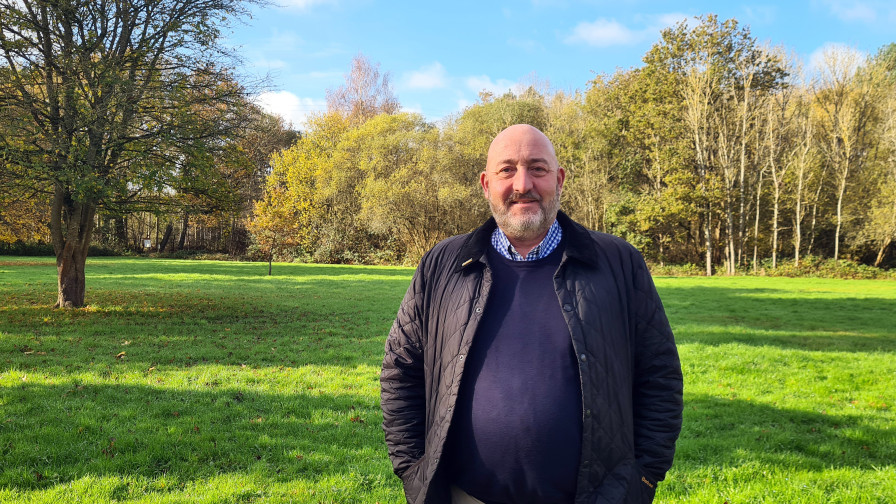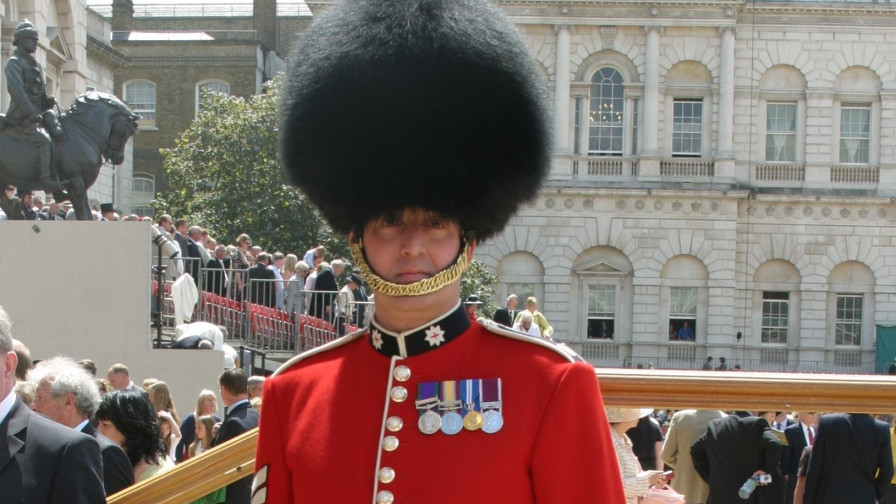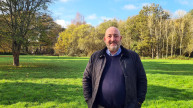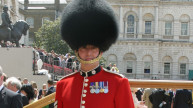Guy's Story
“Combat Stress will always be close to my heart.”
A traumatic experience during the first Gulf War left Army veteran Guy with serious mental health issues. Now, nine years after our life-changing treatment, he reflects on life both before and after Combat Stress.
Guy joined the Army when he was 20, serving in Northern Ireland and the Gulf War. He traces the root of his mental health problems to an incident during the Gulf War in 1991.
“I knew the incident had affected me, but I just tried to carry on as usual,” he says. “It wasn’t until 2000 that I started noticing how bad things really were for me. I was drinking heavily and my behaviour had become completely irrational. I’d have violent, aggressive outbursts and I couldn’t understand why.”
After leaving the Army in 2011, things got worse for Guy. “At my lowest, I wanted to end it all,” he says, “And as time went on, I became more vocal about these thoughts.
“My partner at the time really struggled with how I could so easily say that I didn’t want to live anymore. She couldn’t understand how someone could talk about their life like it was something disposable.
“I was also a really difficult person to live with. I would get uncontrollable bursts of anger, which made my ex-partner feel like she was walking on eggshells all the time. My self-destructive behaviour had a huge impact on her and my stepchildren.”
When everything became too much, Guy called the Combat Stress Helpline. He was diagnosed with post-traumatic stress disorder (PTSD) and in 2015, Guy went on to take part in our intensive residential treatment programme at our England south hub.
“It was a massive journey of self-discovery,” he says. “I had to face my demons and the darkness inside me that had made things difficult for so long. I learnt how to express my feelings in healthier ways: through art, poetry, yoga and mindfulness.
“For the first time ever, I was with people who’d been through similar things; having that unspoken understanding made me feel less alone. Treatment made me see that communication is the most powerful tool we have for our mental health and our relationships.”
Since completing treatment in 2016, Guy’s life has changed massively. “While sadly my relationship didn’t last, life today is the best it’s been in a long time,” he says. “I’m a completely different person now - more considerate and understanding. I’m a firm believer that talking saves lives and have a real passion for mental health - I’m even a mental health first aider.
“I’ve carried on working successfully in the security industry and I do as much as my working life will allow to help Combat Stress.”
Guy is now a well-known face at Combat Stress, kindly giving his time and energy in many ways to help us be there for more veterans who need us. This includes being a member of our National Veterans Forum which, brings together Combat Stress staff, veterans and other sector professionals to co-produce elements of Combat Stress that directly impact veterans, and to give veterans a space to share their expertise. In the long-term Guy would like to become a peer support worker with an organisation like Combat Stress.
He also works closely with our corporate fundraising team to give talks to corporate supporters, attending cheque presentations, working with the media to spread awareness of our work and veterans’ mental health and taking part in our March in March fundraising event – even featuring in a short film to help promote it.
Guy’s involvement with Combat Stress has even led to a new job opportunity with Corps Security, a social enterprise that provides specialist security services including security guarding and security monitoring.
“Corps Security is a big supporter of Combat Stress, and I attended its mental health day on behalf of the charity,” Guy says. “Through that introduction I now have a job with Corps Security as a Commissionaire, a prestigious security role for high-end events, which is great.”
In 2024 Guy was named our Veteran Volunteer of the Year for everything he does to help the charity.
"Combat Stress is always going to be close to my heart,” he says. “I can’t sugarcoat it; if it wasn’t for Combat Stress, I’m not sure I’d still be here.”




